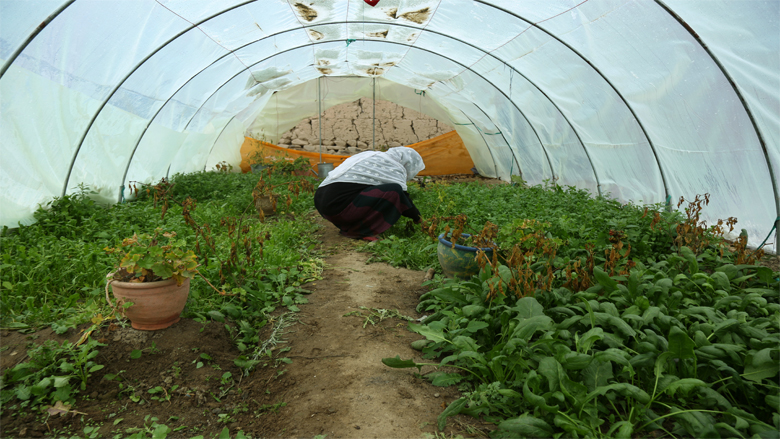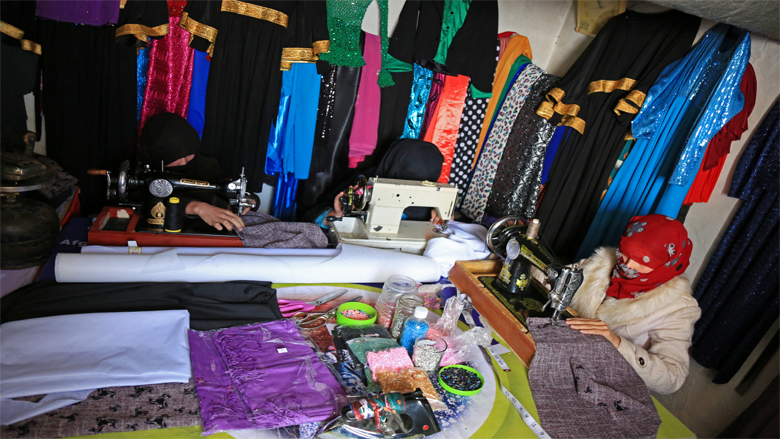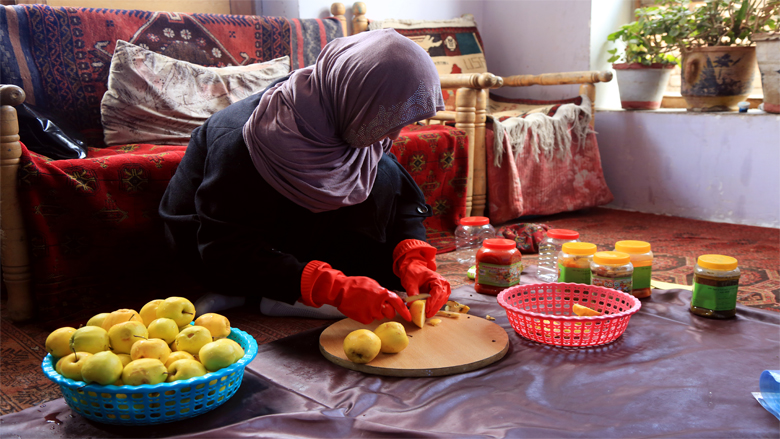Improving Livelihoods
Like Gul, Zarmina has set up her own thriving small-scale enterprise, supporting her family. “I cultivate vegetables and sell them and also use them as food in my home,” she says. “I support my family and the greenhouse has helped me earn money even in harsh winter months.”
With support from the National Horticulture and Livestock Project (NHLP), Zarmina set up a micro-greenhouse and received improved production inputs and technical assistance on vegetable production. “Previously, I did not have the ability to buy equipment for a greenhouse and technical knowledge to manage it. I had no work in the winter,” says the mother of eight.
“We work with poor women on a small scale and on off-season vegetables,” says Amina, Extension Worker in the Kabul region. “This program has helped them find another source of income, thus improving their livelihoods.”
NHLP, which operates under the Ministry of Agriculture, Irrigation and Livestock (MAIL), aims to promote the adoption of improved agricultural production practices and technologies, covering 33 provinces. It has reached over 390,000 male and female farmers with improved technologies and knowledge on horticulture and livestock production, as well as post-production practices, such as finding markets for their products and customer interaction.
By starting small businesses Afghan women are empowered to improve their livelihoods as well as play an active role in the society. Photo Credit: Rumi Consultancy/ World Bank
Participating in Decision Making
While NHLP and AREDP are primarily capacity building projects, the National Solidarity Programme (NSP), which Fatana was a part of, aimed to improve service delivery by strengthening local development governance structures and empowering citizens to participate in the decision-making process on development in their communities.
NSP, which operated under the Ministry of Rural Rehabilitation and Development, worked to strengthen and maintain Community Development Councils as effective institutions for local governance and socio-economic development, while underlining women’s participation in the process. “The condition of women is much better now,” Fatana says. “We can participate in the decision-making process of our village’s development, as well as have an active role in implementing these decisions.”
More than 35,000 CDCs were established all over the country under the program, which has since closed. The recently launched Citizens’ Charter Afghanistan Project (CCAP) will build on the work of NSP to further improve service delivery to rural and urban areas. CDCs will play an enhanced role under the CCAP.
AREDP, NHLP, and CCAP are receiving support from the International Development Association (IDA), the World Bank Group’s fund for the poorest countries, and the Afghanistan Reconstruction Trust Fund (ARTF). NSP, which closed in March 2017, also received support from IDA and the ARTF.
These stories bear testimony to Afghanistan’s unequivocal focus on empowering women and ensuring that they participate in society as partners. As a result of these and other similar initiatives, many communities in Afghanistan are witnessing change. Gul, Zarmina, and Fatana are contributing and making a difference, whether at the level of the household, the village, or the community.



